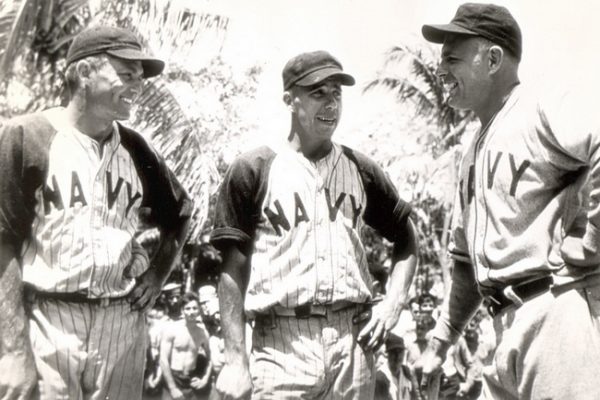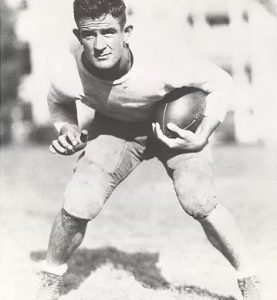Chronicle Commentary: June 26, 1941
The front page notes that Cincinnati Reds southpaw Johnny Vander Meer received a Class 3 deferment, which generally means he has a family depending on his income. Considering gargantuan contracts for 21st-Century athletes a deferment sounds like a major scam, but baseball salaries 80 years ago weren’t so hefty. For example, Ted Williams was one of the top athletes of his era and made around $18,000 in 1941. He had a Class 3 deferment as his mother depended solely on Ted’s income. $18,000 in today’s (2021) dollars is just over $329,000 — around half of today’s league minimum salary.

World War I ace and Medal of Honor recipient Eddie Rickenbacker has finally recovered from a DC-3 crash in February. The Eastern Air Lines president was traveling from New York City’s La Guardia Airport to Brownsville, Texas when his airplane crashed while preparing to land for a stopover at Atlanta. Eight of the 16 people on board were killed and Rickenbacker survived with grave injuries.
Stay tuned as this will not be Rickenbacker’s last death-defying crash.
Among the fatalities was William D. Byron who was elected to the U.S. House of Representatives when he barely defeated Walter Johnson — yes the Hall-of-Fame baseball player — for Maryland’s 6th Congressional District.
Joe DiMaggio’s Record Chase (June 26, 1941)
- Willie Keeler 45 (1896-97)
- Bill Dahlen 42 (1894)
- George Sisler 41 (1922)
- Ty Cobb 40 (1911)
- Joe DiMaggio 38
While not grabbing as many headlines as Joe DiMaggio’s streak, the New York Yankees have extended their streak of consecutive games with a home run to 21 with right fielder Tommy Heinrich’s blast — his 13th of the season. Marius Russo pitched a gem, allowing just one hit (a home run) and two walks as the Yankees set down the Browns 4-1.

DiMaggio was 1-for-4, reaching base on a eighth-inning double off Elden “Submariner” Auker. The nickname comes from his underhanded delivery style, made necessary from an injury Auker received in his football days. Auker was one of the finest athletes to ever come from Kansas State University, earning nine varsity letters (three each in baseball, football, and basketball). The Chicago Bears tried to sign Auker, sending the legendary Bronko Nagurski to recruit him, but he ultimately decided to pitch for the Detroit Tigers. He retires after the 1942 season, despite posting 14 wins for the Browns, going to work making naval and aircraft guns during the war.
During the 1935 World Series against the Chicago Cubs Auker was interviewed by a Chicago Cubs broadcaster named Ronald Reagan, then working for a radio station in Des Moines, Iowa. Years later, when Reagan was governor of California, he told the retired pitcher “You probably won’t remember me, but I’ll remember you as long as I live.” The interview was Reagan’s first “big break.”